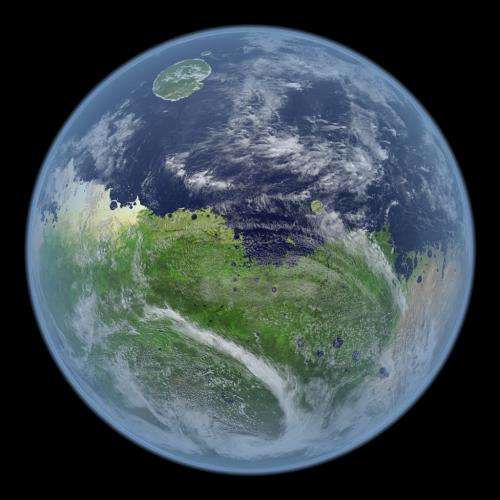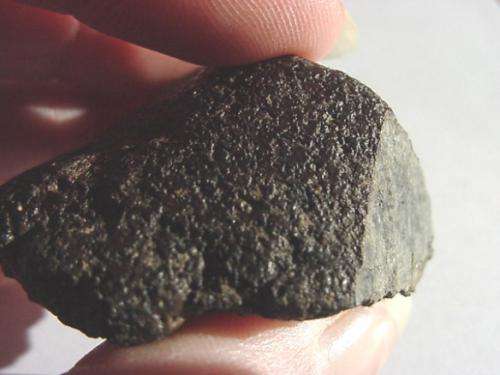Living Mars. Credit: Kevin Gill
The idea that there is life on other worlds is humbling and exciting, and finding life on another world would change everything. This has been a driving force for scientists for decades. We find life wherever we find water on Earth, in pools of boiling water, inside glaciers, even in nuclear reactors.
Because of this, our best candidate for life is probably Mars.
The planet is hostile to life now, but evidence is mounting that it was once a warm and habitable world, with rivers, lakes and oceans. Mars could have vast reserves of subsurface water, where life could thrive even now.
If we did discover life there, it's possible that it's completely unrelated to Earth life. This would demonstrate that life can originate on almost any world, with the right conditions.
It's also possible that life on Mars is related to Earth, and our two planets share a common ancestor billions of years in the past.
This is a theory called panspermia.
It suggests that life on Earth and Mars are connected. That life has been traveling from Mars to Earth and vice-versa for billions of years. "How is this possible?" you might ask.
Meteorites.
Mars Meteorite. Credit: NASA
We know that both Earth and Mars have been hammered by countless asteroids in their history long. Some of these impacts are so powerful, rock debris is ejected into escape orbits. This blasted rock could orbit the Sun for eons and then re-enter the atmosphere of another planet.
We know this is true, because we have meteorites on Earth which originated on Mars. Tiny gaps in the rock contained gases which match the atmosphere of Mars. You would think that an asteroid strike would sterilize life in the rocks, but amazingly, bacterial life can survive this process.
Microbial life can even withstand the harsh temperature, radiation and vacuum of space for thousands – possibly millions of years – riding inside their rocky spacecraft.
Some bacteria could even survive when their "space rock" enters the atmosphere of another world.
So a natural space exploration program has been in place for billions of years, with asteroid strikes hurling life-filled rocks into space, which then smash into other worlds.
Life on Mars has been elusive so far, but there are missions in the works which will have the scientific instruments on board to hunt for life on the Red Planet.
If we do find it, will we discover that it's actually related to us? If we find life under the ice on Europa, or in the cloud tops of Venus, will we discover the same thing?
It gets even stranger.
The Solar System is leaving a trail of debris behind as it orbits around the Milky Way, which could be colliding with other star systems. Which means, it's possible that life around other stars is related to us too.
So maybe there's no life on Mars, or if there is, maybe it originated on its own, or maybe it's all related, as a result of trading life back and forth across giant spans of time and space.
Whatever the case, the search sure is going to be exciting.
Source: Universe Today

























